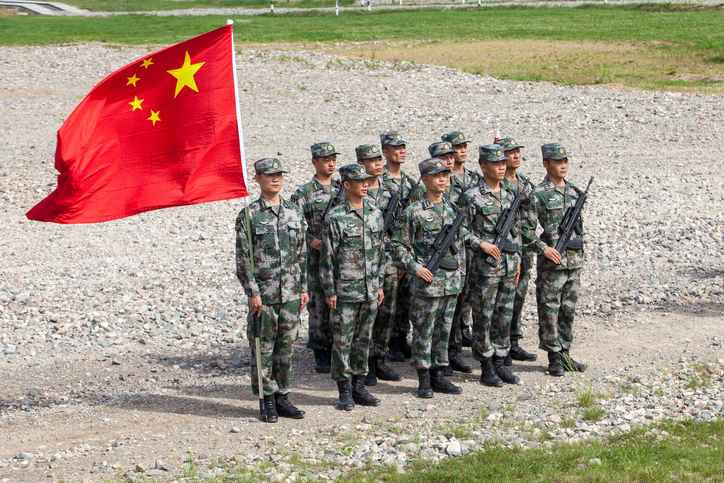
Posted On : Dec 2 2024
China`s Intelligence Shakeup: Boosting Information Warfare Capabilities
In recent years, China's intelligence apparatus has undergone significant reforms aimed at enhancing its information warfare capabilities. These changes are driven by a strategic imperative to strengthen the country's position in an increasingly digital and interconnected global landscape. This article explores the recent shakeup in China’s intelligence services and how it is poised to boost its information warfare strategies.

China’s intelligence community is composed of several key organizations, including the Ministry of State Security (MSS), the People's Liberation Army (PLA) Intelligence Bureau, and the Ministry of Public Security (MPS). Traditionally, these entities operated with a degree of autonomy and sometimes overlapping mandates. However, recent reforms have focused on increasing coordination, streamlining operations, and integrating advanced technologies to create a more cohesive and effective intelligence structure.
A notable development in this overhaul is the establishment of the Strategic Support Force (SSF) within the PLA. Formed in 2015, the SSF consolidates space, cyber, and electronic warfare capabilities under a single command, reflecting a holistic approach to modern warfare. By unifying these domains, the SSF is designed to enhance China’s ability to conduct information warfare, which encompasses cyber espionage, electronic warfare, and psychological operations.
Cyber espionage is a critical component of China's information warfare strategy. The country has invested heavily in developing sophisticated cyber capabilities to gather intelligence, steal intellectual property, and disrupt adversary networks. Recent reports suggest that China has been targeting a wide range of sectors globally, including defense, technology, and government institutions. The integration of cyber capabilities within the SSF ensures that cyber operations are closely aligned with China’s broader strategic objectives, allowing for more coordinated and impactful actions.
Another aspect of China’s intelligence reform is the emphasis on artificial intelligence (AI) and big data analytics. By leveraging AI, China aims to enhance its ability to process vast amounts of data, identify patterns, and make strategic decisions rapidly. This capability is crucial for both offensive and defensive information warfare operations. AI-driven analytics can improve the accuracy of cyber-attacks, optimize electronic warfare tactics, and enhance the effectiveness of propaganda campaigns.
The reorganization of China’s intelligence services also reflects a shift towards more aggressive information operations. Psychological operations, aimed at influencing public opinion and destabilizing adversaries, have become a focal point. China has been increasingly adept at using social media and other online platforms to disseminate propaganda, sow discord, and shape narratives favorable to its interests. The integration of psychological operations with cyber and electronic warfare capabilities creates a powerful synergy, enhancing the overall impact of China’s information warfare efforts.
Moreover, China's intelligence reforms are complemented by a robust legal and policy framework designed to support information warfare. Recent legislation, such as the National Intelligence Law, grants Chinese intelligence agencies broad powers to collect intelligence both domestically and internationally. This legal backing facilitates more aggressive and expansive intelligence operations, providing the necessary tools and authority to conduct sophisticated information warfare campaigns.
The implications of China's intelligence shakeup and enhanced information warfare capabilities are profound. For adversaries, this means a more formidable and versatile opponent capable of conducting multi-faceted and integrated operations across cyber, electronic, and psychological domains. For China, these reforms represent a significant step towards achieving its strategic goals of securing national security, protecting economic interests, and asserting its influence on the global stage.
In conclusion, the recent shakeup in China’s intelligence community underscores its commitment to strengthening information warfare capabilities. By integrating cyber, electronic, and psychological operations under a cohesive framework, leveraging advanced technologies like AI, and bolstering its legal and policy support, China is poised to enhance its ability to conduct sophisticated information warfare. As the global landscape continues to evolve, these developments highlight the growing importance of information dominance in modern warfare and international relations.
No Comments Added




















